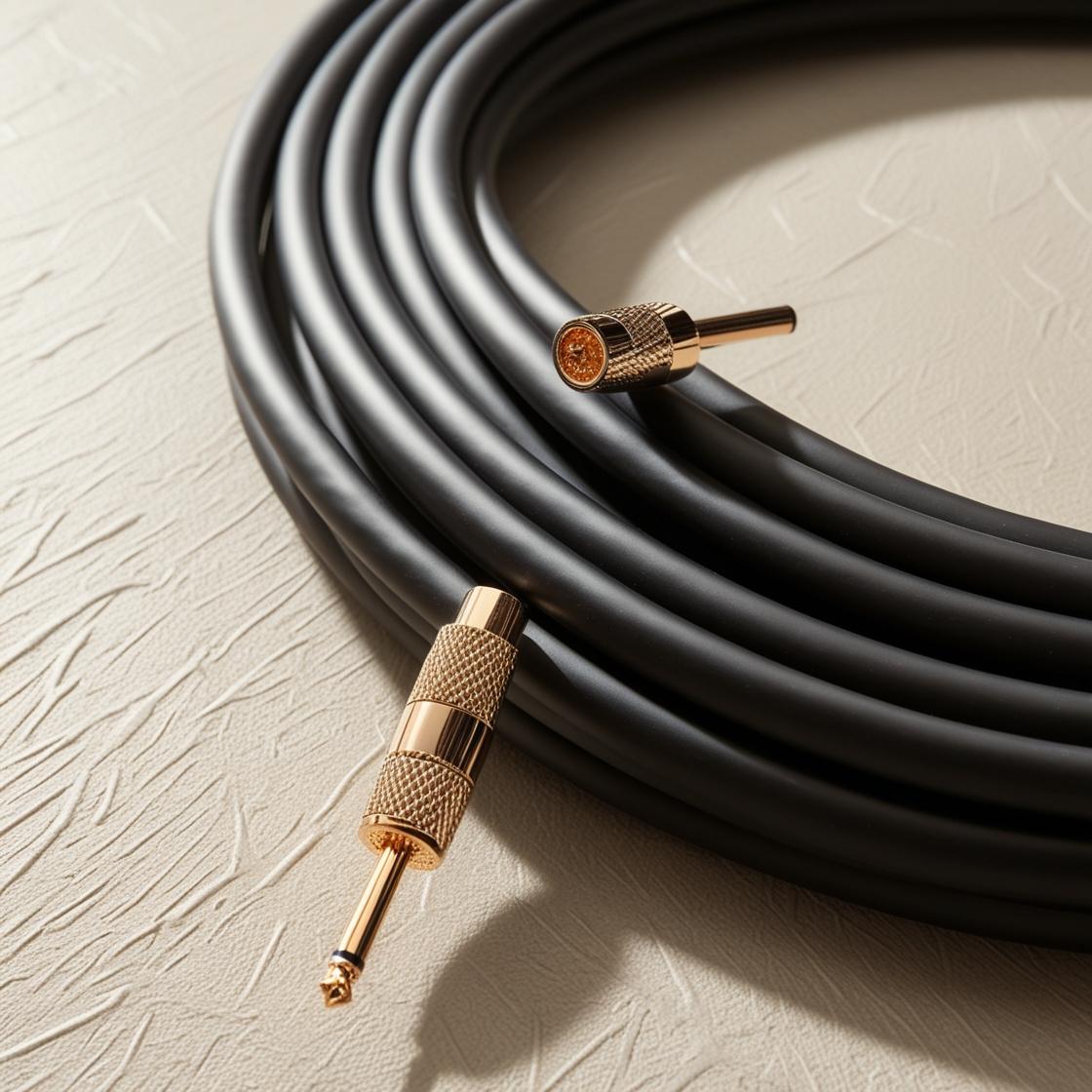Choosing the right audio cables for your turntable and speakers can be quite tricky. As a beginner, it's not always clear which cables you need, how expensive they can be, and how they affect the sound. In this blog post, we explain why good audio cables are important, what types are available, and what to consider when choosing the right cables for your system.
Why are good audio cables important?
Audio cables connect your turntable, amplifier, and speakers. They ensure that the audio signal is transmitted without interference or loss of quality. Poorly made cables can cause noise, hum, or even signal loss, which negatively impacts sound quality. That's why it's important to choose the right cables for your hi-fi system.
Which cables do you need?
With a record player and audio system you often have to deal with different cables:
-
Tulip (RCA) cables : Use these to connect your record player to an amplifier or preamplifier.
-
Ground wire : Some turntables require a separate ground wire to prevent humming noises.
-
Speaker cables : These connect your amplifier to your speakers and come in different thicknesses.
-
Digital audio cables : In some installations, such as with a modern receiver, optical or coaxial cables may be required.
Different types and materials
Material
Most audio cables are made of copper, as copper is an excellent conductor. However, there are differences in quality:
-
Oxygen-Free Copper (OFC) : These cables have fewer impurities, which gives them better conductivity.
-
Silver-plated copper : These cables conduct better at higher frequencies and are sometimes used in high-end systems.
Thickness of the cables
For speaker cables, thickness is important. Cables that are too thin can lead to signal loss, especially over longer distances. Common thicknesses are:
-
0.75 mm²: Suitable for small systems or short distances.
-
1.5mm²: A standard choice for most installations.
-
2.5mm²: For more powerful amplifiers and longer distances.
-
4.0 mm²: Mainly used for high-end audio or very long cable runs.
Confirmation of cable ends
There are several ways to secure the cables:
-
Tulip plugs (RCA connectors) : Used for the connection between the record player and amplifier.
-
Banana plugs : Easy to use and provide a solid connection to speakers and amplifiers.
-
Cable lugs or forks : Used on some speaker terminals to provide a secure connection.
-
Bare wire : You can also connect speaker wires without plugs, but this may be less secure and may come loose more quickly.
Which cables are suitable for your installation?
-
Beginner Setup : A standard RCA cable and a ground wire are usually sufficient.
-
Mid-range hi-fi set : Use quality OFC cables and possibly banana plugs for better connections.
-
High-end system : Silver-plated copper, thicker cables and high-quality connectors can help you get the most out of your installation.
Conclusion
The right audio cables can make a huge difference in your audio experience. When choosing, consider the cable type, thickness, and connection options. A good investment in cables ensures stable, interference-free sound without unnecessary expense. Choose the one that best suits your setup and enjoy your music in the highest quality!


Share:
Here's what to look for when buying speakers for a turntable
The 2025 record fair agenda, don't miss this!